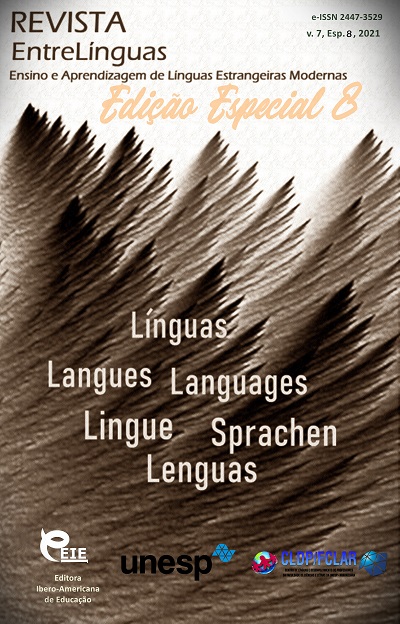Ideology and satire issues of interpretation of Robert Berns's creativity in soviet linguistic and literary studies of the 1950s
DOI:
https://doi.org/10.29051/el.v7iesp.8.16395Keywords:
Russian–English literary, Linguistics, Comparative science, Artistic translation, Intercultural communicationAbstract
The peculiarities of perception of Burns satire in Soviet literary and linguistic criticism of the 1950s are investigated in the article. Among the Soviet literary critics of this time, E.A. Makarova paid the closest attention to Burns satire, who separately characterized anticlerical satires, satires that ridiculed the leaders of the Scottish clans and aimed against the English aristocracy. The methodology of this article is based on the articles written by E.A. Makarova «About Satire in Burns's Works» and «Social Satire in Burns's Poetry of the 1780s». It can be concluded that the specificity of the research perception of the Burns legacy during this period was largely due to the ideological processes in the Soviet society, based on which the readings of many of the Scottish poet's texts were updated.
Downloads
References
GERASIMOV, G. Scottish bard // New time. – 1959. – №. 8. – P. 16–17.
KOPTELOV, A.L. In the homeland of the great Scotsman // Siberian lights. – 1959. – №. 1. – P. 159–162.
MAKAROVA, E.A. On satire in the works of Burns // Voprosy literatury. – 1959. – №. 2. – P. 111–130.
MAKAROVA, E.A. Social satire in Burns's poetry of the eighties // Romano–Germanic philology. – M .: Publishing house of the Academy of Sciences of the USSR, 1958. – Issue. 2. – P. 183–202.
SELKIRK, R. Robert Burns and the Cold War // New time. – 1959. – №. 11. – P. 31.
Downloads
Published
How to Cite
Issue
Section
License

This work is licensed under a Creative Commons Attribution-NonCommercial-ShareAlike 4.0 International License.
Os manuscritos aceitos e publicados são de propriedade da Revista EntreLínguas. Os artigos publicados e as referências citadas na Revista EntreLínguas são de inteira responsabilidade de seus autores.
Transferência de direitos autorais – autorização para publicação
Caso o artigo submetido seja aprovado para publicação, já fica acordado que o(s) autor(es) autoriza(m) a UNESP a reproduzi-lo e publicá-lo na EntreLínguas, entendendo-se os termos “reprodução” e “publicação” conforme definição respectivamente dos incisos VI e I do artigo 5° da Lei 9610/98. O artigo poderá ser acessado pela rede mundial de computadores (Internet), sendo permitidas, a título gratuito, a consulta e a reprodução de exemplar do artigo para uso próprio de quem a consulta, desde que haja a citação ao texto consultado. Essa autorização de publicação 328 EntreLínguas, Araraquara, v. 1, n .2, p. 323-328, jul./dez. 2015 não tem limitação de tempo, ficando a UNESP responsável pela manutenção da identificação do(s) autor(es) do artigo. Os artigos publicados e as referências citadas na Revista EntreLínguas são de inteira responsabilidade de seus autores.











